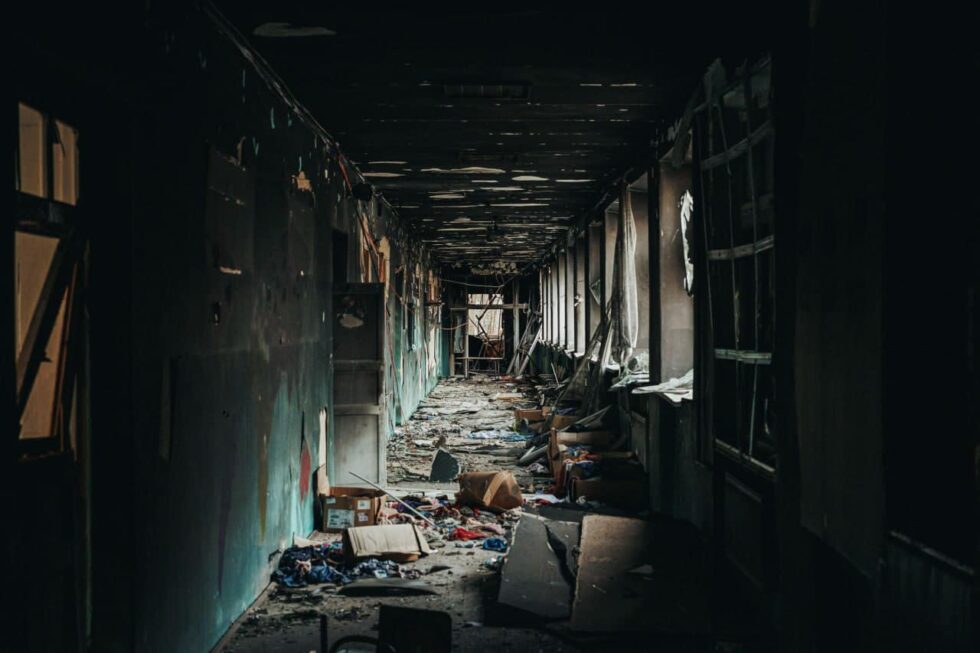Habakkuk 1:12-2:20
But the Lord is in his holy temple;
let the whole earth
be silent in his presence.
Habakkuk 2:20
The world has changed significantly since I first wrote through Habakkuk in 2020. You know what hasn’t changed? The Lord God, Holy One (קָדוֹשׁ אֱלֹהִים יְהֹוָה), YaHWeH Elohim Kadosh (Habakkuk 1:12) never changes. In prosperity and in scarcity, God is the one constant in the universe. It took a minute for Habakkuk to remember that.
One of the things I love about the prophets is that they are just like most of us. God had just told Habakkuk that the Chaldeans were going to ransack Judah to deal with the evil people there. Habakkuk couldn’t make sense of it. He put what he knew about the character of God (everlasting, holy, pure, and righteous) next to the prophecy (righteous people swallowed by wicked, merciless conquest) and found nothing but cognitive dissonance.
“What do you mean you’re going to use the evil Chaldeans to judge your people, Israel?” Habakkuk said. “You can’t even look at evil; how can you be silent when the wicked swallow the righteous?” We still ask these questions, maybe even more so in 2024 than in the last decade.
While many people experiencing a similar cognitive dissonance become discouraged, despairing, or lose their faith altogether, Habakkuk chose to wait and watch for God’s explanation. He committed to standing at his watch post, standing at his tower, and looking out to see what God would say. How often do we give up on God when things are bad?

On a recent Sunday morning a Ukrainian church planter that our church has supported for several years offered an update about how the churches in Ukraine are faring after more than two years of war. She and her family live in Kyiv, and she told of bombardments, airstrikes, and drone strikes against the city. In the winter of 2023, Russian troops destroyed much of the infrastructure that provided electricity to the city. With darkness falling in the late afternoon and temperatures well below zero Centigrade, the people of the city were starving and freezing, just as the Russian strategy intended. Maia told us, “War strips you down to what is important to your purpose.” She added that the gospel becomes urgent when you realize that death is always imminent. When your Sunday worship singing is punctuated by sirens and explosions, there are no more distractions to the peace of God’s presence among the gathered believers.
At the beginning of the war, Maia’s daughter was 38-weeks pregnant. Maia cried out to God, why now, why here? The young family chose to stay in Ukraine, and 21-days into the war, little Briana was born. In the darkest moments of the battle, a tiny girl became a gift of light and hope, a reason to smile, not just for the family, but for members of the church who saw her every Sunday. Her infant needs offered an opportunity to do something for someone else. As the war continued, church members began to find other ways to serve each other. They took care of each other, and then began visiting the front lines to help in any way they could. Maia said, “The hardest times for us were at the beginning of the war when we were under siege with many days of curfew. We couldn’t leave the apartment; we couldn’t do anything. Once we started helping people, going to other places, bringing humanitarian aid, if we felt like, ‘Okay, we can do something. It’s not paralyzing fear…There’s so much energy and joy because we can do something.” Putting on Christ, becoming Jesus in the chaos of war, allowed the Christians of Ukraine to wait on God for His answers to their “why?”
God DID answer Habakkuk. There’s no indication how long Habakkuk waited, but God’s answer came with both the ultimate fate of the Chaldeans AND the proper response of the faithful. The Chaldeans would eventually be conquered by Babylon. In the meantime, God told Habakkuk to wait for it (2:3), live by faith (2:4), be assured that the glory of the Lord will fill the earth (2:14), and that His character is unchanged (2:20). We, too, need to watch and wait for God’s long-term eternal plan to finally see true justice. It’s not easy. At all. We still ask, “how long will God stay silent while the wicked prosper?” I think part of the lesson of Habakkuk is that it’s okay to be confused. God doesn’t expect us to understand. And it’s perfectly acceptable to ask the questions, as long as we are committed to watching and waiting for the answers, while in the meantime, serving others with gladness.
This is faith, living with insecurity while trusting God’s character. We are justified by that faith, which leads to peace even when life is hard and we can’t see how anything good can come out of our circumstances (Romans 5:1-5). Sometimes trusting God comes easily. Other times we hang on by the very tips of our fingers. We aren’t alone in questions and confusion, but when we are committed to waiting and watching, we will ultimately see God’s glory revealed (Habakkuk 2:14, Romans 8:18).
Maia Mikhaluk at Fellowship Roswell Church, April 21, 2024:
Mikhaluk website: https://ipministry.org/


